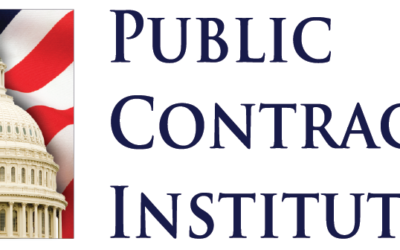The best rule to follow when drafting a proposal is to check every requirement in the solicitation, and then have your work doublechecked by someone else (or another team) to ensure that all required items are included. Don’t make assumptions about what the agency wants—ask in writing. If you fail to include required items, your proposal may be disqualified or scored lower than you expect. In Armstrong Elevator Co., B-422123, Dec. 28, 2023, the protester, Armstrong, (who was the low offeror) failed to write an adequate proposal that included all required information.
Drafting a Proposal
The Department of Veterans Affairs (“VA”) issued a solicitation for the replacement of cart transport elevators in a hospital building in Houston, TX. The award was to be made on a best-value tradeoff with two factors—past performance (significantly more important) and price (less important. The solicitation required the following
- Detailed summary of three recent and substantially complete contracts for elevator replacement work in an occupied hospital environment
- The solicitation identified nine categories of information that the detailed summary should discuss, including
- Project performance period (with initial and actual performance dates, schedule impacts and efficiencies);
- The names of any subcontractors used, their responsibilities and percentage of work performed; and
- A narrative that demonstrated experience with elevator installations in an environment similar to the Houston VA Medical Center (including details on complexity, magnitude, challenges and degree of success)
The solicitation stated that relative risks would be assessed, and likelihood of success as well. Finally, the solicitation stated that “Offerors are responsible for including sufficient details, in a concise manner, to permit complete and accurate evaluation of each proposal.
The evaluation results of the two highest offers was:
| Armstrong | Elevated | |
| Relevancy | Relevant | Very Relevant |
| Confidence | Satisfactory Confidence | Substantial Confidence |
| Overall Risk | Low Risk | Low Risk |
| Price | $1,922,000 | $1,948,710 |
In the evaluation, the VA assessed a weakness for each of Armstrong’s past performance items because they did not provide all the required information. For each project, Armstrong’s proposal failed to address use of subcontractors (explaining during the protest that there were no subcontractors—but never stating that in its proposal), challenges encountered during performance and steps taken to overcome them, and initial and actual dates of performance. Armstrong did not clearly identify its past performance as having been in an active hospital environment, as required by the solicitation.
The Government Accountability Office (“GAO”) noted that it is the offeror’s responsibility to submit an adequately written proposal, including adequate information on past performance. Armstrong’s position was that the VA should have “assumed” that no subcontractors were used if no information concerning subcontractors was provided in its proposal, and that the projects were completed on time if only one set of dates was submitted for each project. GAO rejected Armstrong’s reasoning, noting Armstrong’s responsibility (as stated in the solicitation) to include such specific information in its proposal.
Takeaway: The offeror writes the proposal and must always comply with the solicitation requirements. Completeness is very important to drafting a proposal.
- When asked to provide information on subcontractors for a project, you might say “there were no subcontractors” or you should provide the detail on the subcontractors for the project.
- Always include detailed information concerning a solicitation’s request for all relevant (similar) past performance. Use the solicitation as a guide—make your proposal convincing.
- Respond with details to everything requested in the solicitation.
For other helpful suggestions on government contracting, visit:
Richard D. Lieberman’s FAR Consulting & Training at https://www.richarddlieberman.com/, and Mistakes in Government Contracting at https://richarddlieberman.wixsite.com/mistakes.
Learn more about drafting a proposal:



